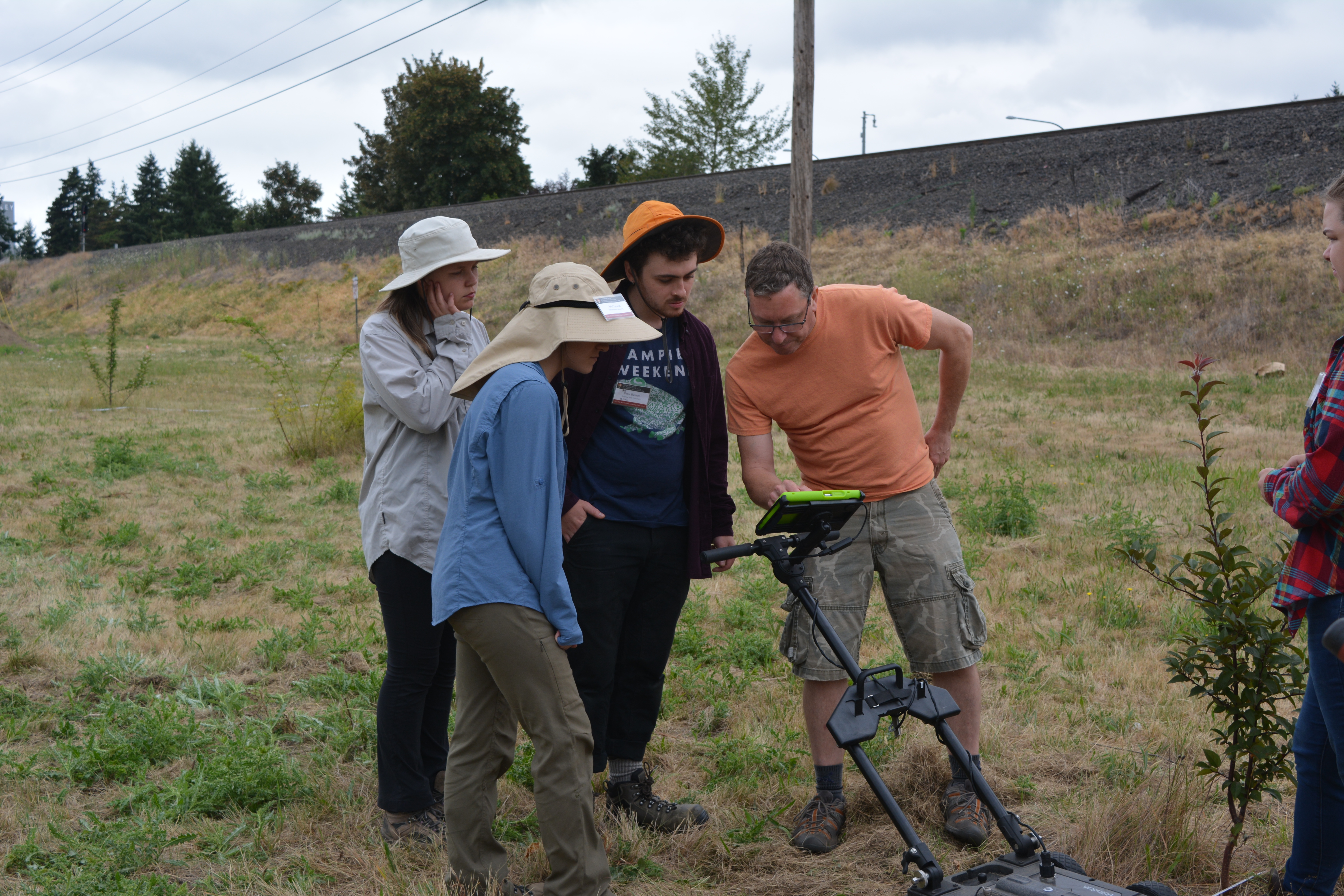Undecided about how to spend your summer? Consider participating in a summer research experience program — either right here at PSU or at another school in the country.
Research Experiences for Undergraduates, or REUs for short, can be anywhere between 6 and 10 weeks long and are often paid. You can find a REU in pretty much every field of science.
It gives you a chance to meet new people, dive deeper into an area of interest or explore a new one and get hands-on research experience.
Todd Rosenstiel, dean of PSU’s College of Liberal Arts and Sciences and a biology prof whose lab is accepting undergrads this summer, says the most important thing a young scientist can do is ask questions.
“The best way to figure out if research is for you is to actively participate in authentic, real-world discovery and research training,” he said.
At PSU, we have three REU sites — plus an archaeological field school, if you dig that.
Climate and Atmospheric Science Research Experience

Our Center for Climate and Aerosol Research hosts this site with research projects related to climate and atmospheric sciences, particularly atmospheric chemistry, physics, air quality, meteorology and climate change.
The 10-week program (June 20-Aug. 26) includes:
- Individual research projects alongside faculty mentors from fields as diverse as chemistry, geography, geology, mechanical engineering, biology, environmental science and physics
- $6,000 research stipend
- A weeklong training on instruments and techniques, a safety course, library seminar and a short course on Atmospheric Science
- On-campus housing
- Possible travel to conferences
- Final presentation to showcase your work
Get more information on eligibility and application requirements.
Application Deadline: March 18, 2022
Applications of Microscopy and Microanalysis in Multidisciplinary Research
This program allows students to engage in research work in a multidisciplinary environment while training them in microscopy and microanalysis techniques for materials characterization.
The 8-week program (June 20-Aug. 12) includes:
- Individual research projects alongside faculty mentors from fields as diverse as mechanical and materials engineering, civil and environmental engineering, electrical and computer engineering, biology, chemistry, environmental science, geology and physics
- $4,000 research stipend
- A weeklong training course and practical seminars throughout
- Field trip to visit several local high-tech companies such as Thermo Fisher Company, Intel and Nike In-House Manufacturing
- Final presentation to showcase your work
Get more information on eligibility and application requirements.
Application Deadline: April 15, 2022
altREU: Computational Modeling Serving Your Community
This program is an alternative, fully online and project-based experience that lets you come up with your own project that will have a direct impact on your community. This isn’t a paid opportunity, but you’ll have the flexibility you need to be able to work a job, take classes or fulfill other obligations.
The 10-week program (June 6-Aug. 12) includes opportunities to:
- Find a project and stakeholders in your community
- Solve a real-world problem
- Build computational models
- Analyze, process and visualize information
Get more information on eligibility and application requirements.
Application Deadline: April 24, 2022
Public Archaeology Field School at Ft. Vancouver National Historic Site

Join a team from PSU, Washington State University Vancouver and the National Park Service to explore one of the most important sites of colonialism in the Pacific Northwest, the 1844-1849 schoolhouses of the Hudson’s Bay Company. The site has never been archaeologically tested, and excavations will confirm the location of the schoolhouse structures, gathering material evidence of the people who inhabited them. You’ll get six undergraduate or graduate anthropology credits.
The field school (June 28-July 30) includes opportunities to:
- Become proficient in archaeological field techniques, including site identification, testing, and excavation
- Employ mobile information technology in a variety of field situations
- Work with experts in remote sensing including ground-penetrating radar (GPR) in workshops and lectures to integrate geophysical data into the exploration of past people through their belongings
- Explore the National Park Service’s National Register program and collect monitoring information through field trips to nearby National Historic Landmarks
- Acquire skills in laboratory processing of artifacts, basic artifact identification, and techniques of archaeological analysis
- Learn skills from NPS interpreters and public archaeology experts on how to engage with a diverse public
Application Deadline: May 1, 2022 (for early notification, apply by April 1)
You can also search for REU sites by research area and/or state on the National Science Foundation’s site. Deadlines are fast approaching so you’ll want to start preparing your applications as soon as possible.
About the College of Liberal Arts & Sciences: We’re Portland State’s largest and most diverse college, with 24 departments spanning the humanities, natural sciences and social sciences.

